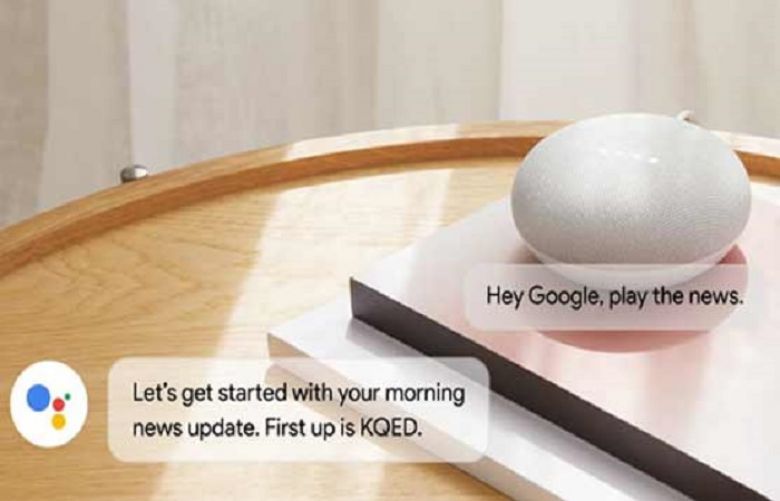Google has decided to launch a voice-driven version of Google News for smart speakers and phones, that will deliver more personalized audio news feeds through Google Assistant.
Liz Gannes, a former reporter for Recode, said that were combining Google News with the interactivity and voice experience of Google Assistant. The company has spent the past year working with around 130 publishers to build a prototype of a news radio station that customers can control — using voice to skip stories, go back, or stop and dive further into a given topic. It’s built using each story as an individual chunk, rather than a briefing of stories chunked together. This video helps it make more sense:
“Imagine if you ask for news and get a quick update on the stories of the moment, then you get stories that speak to your personal preferences and interests. It’s like your radio station,” said Gannes. If you tune in the morning on your phone, you might get a quick update. If you listen in your car — or anywhere else throughout the day — stories you heard earlier won’t repeat.
However, Google itself wrote in a blog post announcing the effort “To benefit the industry as a whole, we have together drafted an open specification for single-topic story feeds,” further adding, “We have also worked closely with publishers” — including the Associated Press, CBS Local, and KQED — “to develop ways for an aggregated audio feed to serve as a discovery platform for their owned-and-operated sites.”
Google is now working for more publishers to submit their single-topic story feeds and try the technology. Being part of Google Assistant means this product could end up available on millions of Google Home speakers, Android phones, and a range of other devices for the home and car. But for now, Google says, it’ll “only be heard be a very limited number of people on phones and speakers,” only in English and in the United States.
Longtime observers of podcasting may recognize some of this new effort’s DNA from a couple other recent projects. The idea of assembling a rolling, radio-like feed out of individual stories and segments was key to the startup 60dB, which promoted itself two years ago as a “service for high-quality, short-form stories,” with an emphasis on short. (No two-hour bro-chats about movies here.) There the connection is genetic — Google acqui-hired 60dB’s team, including Gannes, a little over a year ago, and this is something of a successor product.
The other clear antecedent to Google’s effort is NPR One, the public broadcaster’s popular app that also itemizes individual stories into streams that can be personalized based on user behavior. (We first wrote about it way back in 2011, in its previous iteration as the Infinite Player. Yes, enjoy that rarest of moments: Google catching up to an idea public radio had 7 years ago.) About 19 percent of NPR streaming now goes through smart speakers, up from just 4 percent a year ago. NPR One, though, is mostly (if not entirely) about the broader public-radio universe of audio; Google’s effort has no such boundaries.
“News on smart speakers is not living up to the promise of what it could be,” Gannes told me. “Publishers are super savvy about smart speakers, but they don’t necessarily feel that they have the development resources to build the whole thing for themselves.” Smaller outlets, for instance, may not have been able to experiment with voice because of the infrastructure and skill required to produce audio; the hope is that if Google helps on the tech end, more publishers will be able to get their content out.
Google will offer participating publishers some analytics — to start, how and where people are listening. Some advertising will also be added eventually. “We have made a commitment to participating publishers that we do expect to monetize this product and support their existing monetization methods,” Google spokesperson Maggie Shiels told me.
Like Google News, this audio venture will ultimately be available to pretty much any news publisher that can work with Google’s open standard and adheres to Google News’ basic (and vague) content standards. In other words — from what I can tell at this early point — it isn’t impossible that some garbage news will slip in.
But “we want to balance inclusivity with making sure that we’re delivering a real news product and not something that misleads users,” Gannes said. “We’re balancing personalization and giving people what they want with the fact that this is a news product, so we want to tell you what we think are the top stories of the day, based on what the top outlets are telling us are the big stories of the day.”







